world news
Hamas is increasing its activity in Lebanon and angering Hezbollah
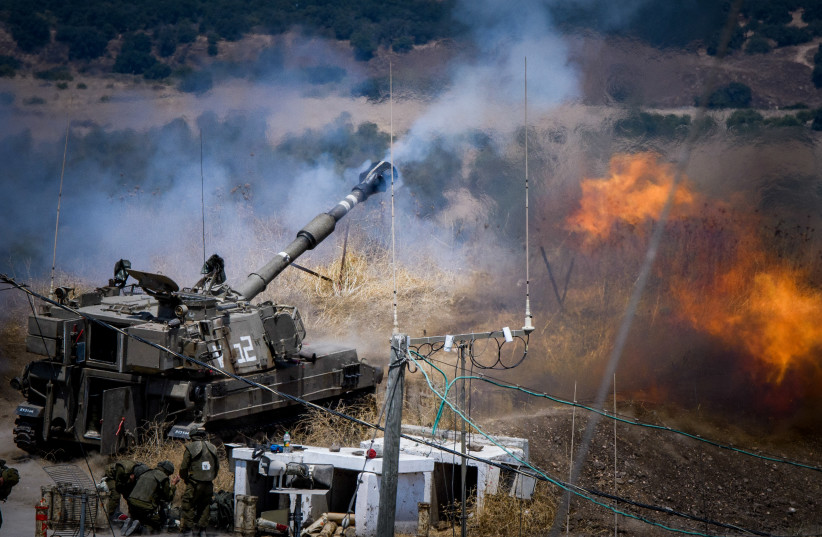
Headed by Majed Qader Mahmoud Qader who recently moved to Lebanon from Istanbul, the “Construction Bureau” has two units, the Al-Shimali Unit and the Khaled Ali Unit, with hundreds of operatives each.
The Al-Shimali unit operates in five main geographical areas in Lebanon: Beirut, Tripoli, the Beqaa, Sidon, and Tyre. It is headed by William Abu Shanab who underwent professional UAV training in Iran and Indonesia. His deputy is Bara’a Hasan Farhat and the unit’s intelligence officer is Khalil Muhammad Azzam.
The Khalid Ali unit is commanded by Muhammed Hamed Jabara.
Qader’s deputy, Muhammed Ibrahim Wadh Salim, is also reported to be the head of the manufacturing department of the Bureau which provides technical assistance and develops and manufacturers rockets and drones.
Salim is said to be a mechanical engineer by training and is considered one of the leaders of Hamas’ medium-range rocket development program as well as responsible for improving the group’s rocket, UAV and explosive submarine accuracy technology.
The report also named several other senior Hamas operatives in Lebanon, including Saleh al-Arouri who is the deputy head of the group’s political bureau and responsible for terror attacks in the West Bank.
The head of Hamas in Lebanon is Ahmed Abd al-Hadi, known as Abu-Yasser, since 2019. Jihad Ta serves as Abd al-Hadi’s deputy. Osama Hamdan, who previously served as head of Hamas in Lebanon, is currently a member of Hamas’ political bureau. He also holds the title “Head of the Bureau of Arab and Islamic Relations” in Hamas.
The group’s leader in southern Lebanon was identified as Dr. Ayman Shana’a.
Hamas has been active in Lebanon for decades and its military activity in the country is done under the assistance, initiation, and supervision of the Palestine branch of the Quds Force in the Iranian Revolutionary Guards.
A supporter of Lebanon’s Hezbollah leader Sayyed Hassan Nasrallah carries pictures of the late Iran’s Quds Force top commander Qassem Soleimani during a rally commemorating the annual Hezbollah’s slain leaders in Beirut’s southern suburbs, Lebanon February 16, 2020 (credit: REUTERS/AZIZ TAHER)
Israel has openly acknowledged Hamas’ intensification in Lebanon, including Hezbollah’s stronghold of southern Lebanon.
This “actually forced Hezbollah to join the rocket fire and in our assessment doing so without genuinely desiring to,” read the report.
While Hezbollah views Hamas and Palestinians in general as “guests” in Lebanon, ALMA said, “based on the intensification and independent military operations carried out by Hamas from Lebanon, Hamas does not appear to see itself as a ‘just a guest’ in Lebanon.
The ongoing activity by Hamas, the report continued, “has the potential of creating a severely difficult challenge for Hezbollah. Hamas pursues its own interests in Lebanon, including not informing Hezbollah ahead of time when Hamas fires rockets into Israel – a pattern that could drag Hezbollah into a war with Israel, against Hezbollah’s own interests.”
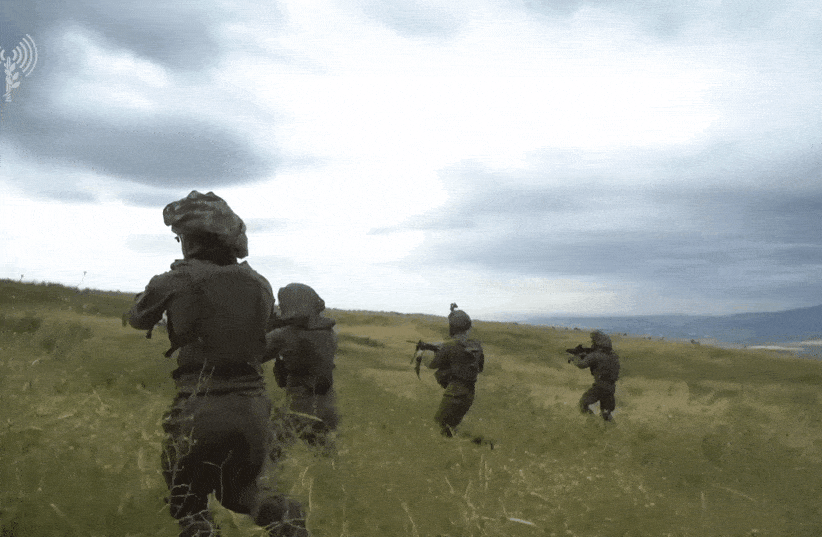
ALMA recommended that even though it might be in Hezbollah’s interests, due to Hamas’ ongoing activity in Lebanon, “Israel should ‘think outside the box’ and act openly against Hamas targets in Lebanon if Hamas attacks from the Gaza Strip and vice versa.”
world news
Eyeing Iraq and Syra, the IDF is preparing to fight in Lebanon – analysis
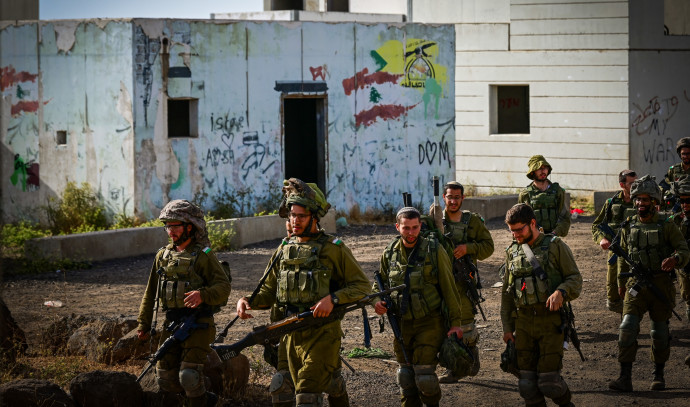
The cherry season is at its peak but there is little traffic in the orchards and the fruits are rotting on the branches.
Israelis, unlike every year, are avoiding a pilgrimage north to the self-harvesting orchards in Odem, Merom Golan, Kela, and Elrom. The winds of war gripped the Golan Heights this week with intensity.
Dozens of forest and pasture fires broke out in the northern plateau near Katzrin and up to the western slopes above Kibbutz Gadot.
Hezbollah has been hit in recent weeks by IDF operations. Their desire to respond, to take revenge burns inside them.Therefore, they chose to increase the range of fire for military targets in the Golan Heights. This is how Hezbollah broadcasts that it is looking for revenge in addition to preparing the fighting space for the day when Israel will make a significant move in Lebanon.
Under new management
A month and a half ago, Col. Benny Kata assumed the position of commander of the 474th Brigade, the brigade that defends the Golan Heights area.
Ostensibly, he should have turned his attention to the east, towards Syria and even deeper into Iraq, but already in the process of taking over the role, he realized that he must also be ready for missiles and UAVs also from the northern theater in Lebanon.
In the weeks he has been in office, almost every day, Hezbollah fired rockets or launched anti-aircraft missiles into the Golan Heights from Lebanon.
80 percent of the forces in the Golan Heights are combat-reserve units. The previous times that the reserve army was in the Golan Heights in such numbers were during the Yom Kippur War and both the first and second Lebanon Wars.
The eastern border with Syria is a fake border. On the one hand, the Separation of Forces Agreement was maintained even during the civil war in Syria during the Arab Spring.
UNDOF forces, entrusted with maintaining the armistice agreement and the separation of forces, act with respectable assertiveness, unlike the UNIFIL forces on the Lebanese border. On the other hand, beneath the false silence, unrest is taking place. Even binoculars for viewing from a distance will not reveal what is taking place.
The Iranians managed to take control of considerable areas in Syria during the days of the civil war.
They sacrificed their lives to save the rule of Assad Jr.
Thousands of Shiite Iranians migrated from northern and western Iran to Syria. In the world media, they are called “pro-Iranian militias”. In practice, they are Iranian fighters under the operation of the Quds Force of the Islamic Revolutionary Guards.
“The Iranian proxy was in our eastern arena. We know what the capabilities of Iran and Hezbollah are, and they exist among these militias in Syria and in Iraq as well,” said one military official.
This is the reason why Col. Benny Kata and his soldiers work around the clock. On the one hand, the IDF is improving readiness in the Golan Heights, through more training and improving the means for both attacks and warning, as well as improving the line of fortifications and carrying out engineering operations.
The IDF says that the goal is to damage the capabilities of the Iranian militias deep in Syria and even in Iraq. To this end, the army was deployed not only on the Israeli side of the border but also in the security area, which is a section of hundreds of meters, defined as Israeli territory, but it is east of the perimeter fence.
According to foreign publications, the IDF operates every few days in much deeper ranges, both in the outskirts of Damascus, Homs, Quneitra and more.
“We are not evacuating the residents of the Golan. Our defense activity is in the space beyond the fence,” says a military official. But in the 747th division, they don’t take any risks after October 7.
Along with the offensive defense plans, they are strengthening rear defense systems, including refreshing and strengthening all the standby classes in the settlements. The IDF increased the classes, trained the fighters, and even provided combat equipment that would allow dealing with forces’ infiltration into the Golan Heights area.
The decision on whether to go for a ground maneuver in Lebanon may be made at the political level soon.
This is, of course, if we judge by the level of statements and threats heard in recent days. The IDF understands that such a move will open at least one more fighting front in the Golan.
world news
Why does Europe recognize a Palestinian state separate from Israel?
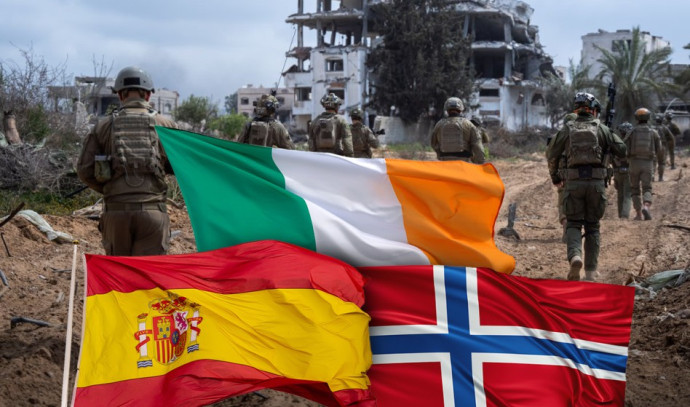
Spain, Ireland, and Norway’s recognition of a Palestinian state is perceived in Israel as a product of antisemitism and an anti-Israel stance in the Israeli-Palestinian conflict. However, it is not necessarily, certainly not exclusively, related to these positions. This step can also be seen as a European ideal to change the course of history and to reinforce Europe’s influence in the Middle East.
Politics are driven by power and control. These concepts are not only achieved through military force but can also be implemented through the dissemination of cultural and political ideas. Starting from the mid-19th century until its end, Europe experienced a national awakening. Within this context, Christian Europe shaped the idea of the nation-state. Europe did not think then about nations outside itself, but some of them had already begun to think about themselves. This happened in Asia, the Americas, and even in Africa. The Jews, in their own way, quickly adopted the new idea and created Zionism.
In contrast, the Muslim world never fully embraced this political organization. This is particularly true among Arabs in the Middle East. The adoption of the nation-state idea in territories like Egypt, Iraq, Jordan, Syria, and Lebanon is still partial and territorial to this day and is explicitly a product of European colonialism. At some point, Muslim Arabs understood that in order to break free from European colonial rule, they needed to learn to speak their language and establish organizations that would be legitimate in their eyes, and quickly created national resistance movements against European colonialism.
These movements have over time transformed into nation-states. Yet from the authentic consciousness of the Arabs in the region, the concept of nationalism is still a foreign concept. It is no coincidence that Arab-Muslim nation-states in the Middle East remain weak and fragile to this day, with some of them undergoing more or less advanced processes of disintegration.
Israel’s influence on Muslim ideals
Veterans of the IDF are certainly surprised by the stubborn resistance of Hamas in Gaza. They are used to Arab soldiers in the service of nation-states, who abandon the battlefield in a panic as soon as things start to get messy. The Arab/Muslim trust in nationalism is so tenuous that loyalty to the nation is not a sufficient motivation for a soldier to risk his life.
In contrast, Hamas succeeds in arousing authentic tribal impulses and providing motivation and even enthusiasm to its murderous terrorists, because Hamas is formally a nationalist movement. Hamas demands the territory of the Land of Israel and the expulsion of the Jews from it mainly in the name of Islam. In its view, the Land of Israel is their holy land and the Jews are infidels. This idea finds shorter and more direct routes to the hearts of the Palestinians, as it has been pumped for almost 1,500 years by all the Muslim empires that ruled over the Land of Israel.
So faced with Hamas, which emphasizes the religious aspect of the conflict and receives funding from Iran that promotes the idea of a Muslim empire – the historical enemy of Christian Europe – Europe is trying to forcefully reintroduce the European idea of a Muslim nation-state to the region, because a Palestinian state based on the European nationalist idea will remain weak and dependent on Europe. It seems that this is the profound truth behind the European recognition of the Palestinian nation-state. Of course, the move also has a connection to Israel and the century-old conflict, but that is certainly not the sole reason.
world news
International Peacekeepers Day: UNIFIL’s role questioned amid Israel-Hezbollah conflict
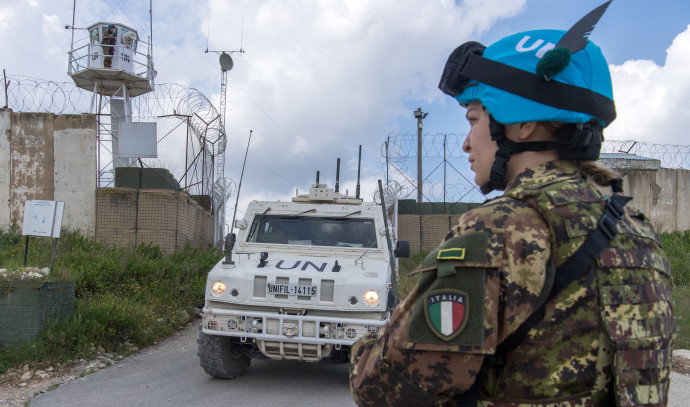
As international actors debate the legitimacy of Israel’s operation in Gaza, the war on Israel’s northern front rages on. Deaths from the Israel-Hezbollah conflict are continuing to rise, and over 100,000 Israelis are still evacuated from their homes in northern Israel, leading some to question the efficacy of the UN peacekeeper force meant to maintain security in southern Lebanon.
Israel’s 1978 invasion pushed the PLO north of the Litani River, about 18 miles from the border, in order to limit attacks against Israel. Despite the establishment of UNIFIL as a peacekeeper force, Israel returned to Lebanon in 1982. In 2006, another conflict broke out between Israel and Hezbollah, a Lebanese Shiite group with ties to Iran.
After 34 days of fighting between Hezbollah and Israel in 2006, the UN brokered a cease-fire. Under the agreement, UN Security Council Resolution 1701, Israel and Hezbollah agreed to cease hostilities, and UNIFIL was tasked with ensuring that no armed groups other than itself and the Lebanese army operated south of the Litani River.
Today, UNIFIL comprises more than 10,000 soldiers from 49 nations. In addition to monitoring the border, the organization also provides humanitarian assistance to civilians affected by the exchange of fire in southern Lebanon.
UNIFIL’s role pre-October 7
“Before Oct. 7, we were able to guarantee the overall stability of the southern border for years, and this was clearly a success,” Andrea Tenenti, spokesperson for the UNIFIL mission, told The Media Line. “We played an active role. In fact, we have helped the Lebanese army, starting from 2008, to regain control of the southern part of the country.”
Despite UNIFIL’s successes, Hezbollah has grown stronger in southern Lebanon since 2006, especially in the towns and villages along the 75-mile-long demarcation line, leading some to criticize UNIFIL as ineffective. Since Oct. 7, as constant clashes between Hezbollah and Israel have plagued southern Lebanon and northern Israel, those criticisms have grown louder.
“The UNIFIL mission started with very weak points and ended up being more a cease-fire resolution than a peacekeeping one,” Hanin Ghaddar, a senior fellow at the Washington Institute, told The Media Line. She noted that the forces mostly report violations.
“They do not possess the tools and permission from the UN to confiscate weapons or even arrest those affiliated with” Hezbollah, she said.
Tenenti characterized UNIFIL as “the only ones who can mediate properly” amid the rising tensions, noting that the group had arranged meetings between the Israeli and Lebanese armies.
UNIFIL does not only monitor the conflict between Hezbollah and Israel—at times, it finds itself caught up in that contact. Among other incidents, a car bomb killed six UNIFIL personnel in 2007, and in October, two mortar shells of undetermined origin hit a UNIFIL base, injuring one peacekeeper.
“Hezbollah targets UNIFIL because they do not want another actor in the south,” Ghaddar explained. “It is never an accident when UNIFIL personnel is targeted because the militant group aims to send a message both to the countries that serve in these forces and to the UN: do not interfere with our activities in the southern part of the country.”
Avraham Levine, a speaker at the northern Israel-based Alma Research and Education Center, told The Media Line that Hezbollah has more control over UNIFIL than UNIFIL does over Hezbollah.
“There are areas where UNIFIL personnel cannot go to, and if they end up by mistake in Hezbollah’s territory, they are attacked on the spot, their vehicles are burnt, and sometimes they are even shot down,” he said.
Levine also said that Hezbollah uses UNIFIL bases for its military purposes.
“Both in 2006 and in further operations that Israel carried against Hezbollah, the militants used UNIFIL compounds as shields for their operations in order to stop Israel’s counterattacks against a UN base,” he said.
One of the rockets launched at Israel by Hezbollah in December originated just 20 yards from a UNIFIL compound.
Levine said that the Lebanese army’s lack of action to rein in Hezbollah relates to the Shia sympathies of many of the soldiers as well as the interest in avoiding another Lebanese civil war.
Describing both UNIFIL and the Lebanese army as ineffective deterrents to Hezbollah, he said that Israel may have to invade Lebanon once again.
“We cannot risk another Oct. 7 in the northern part of Israel since [Hezbollah Secretary-General Hassan] Nasrallah publicly claimed his goal to invade the Galilee. Even if this scenario is not pleasant for both sides, we may need to stop Hezbollah by entering Lebanon as we did in the past,” he said.
In the event that a full-scale war between Israel and Hezbollah does break out, UNIFIL may be a target, Levine said. “Maybe this may push to reconsider its mission in the first place,” he speculated.
-

 Solar Energy3 years ago
Solar Energy3 years agoDLR testing the use of molten salt in a solar power plant in Portugal
-

 Camera3 years ago
Camera3 years agoCharles ‘Chuck’ Geschke, co-founder of Adobe and inventor of the PDF, dies at 81
-

 TOP SCEINCE2 months ago
TOP SCEINCE2 months agoStellar winds of three sun-like stars detected for the first time
-

 Solar Energy7 months ago
Solar Energy7 months agoGlencore eyes options on battery recycling project
-
world news7 months ago
Gulf, France aid Gaza, Russia evacuates citizens
-
world news2 months ago
Jewish diaspora expresses concern as Iranian drones launch toward Israel
-

 TOP SCEINCE2 months ago
TOP SCEINCE2 months agoBrightest gamma-ray burst of all time came from the collapse of a massive star
-

 Camera7 months ago
Camera7 months agoDJI Air 3 vs. Mini 4 Pro: which compact drone is best?

